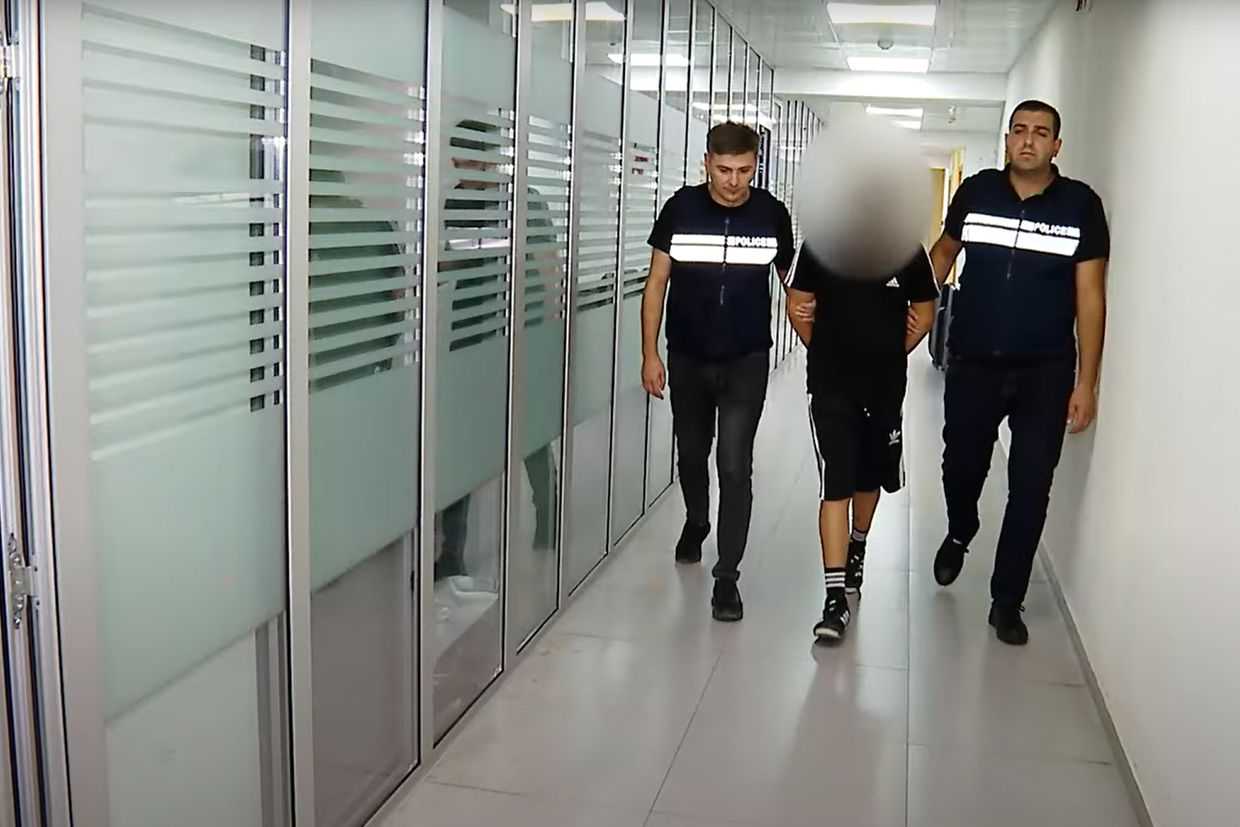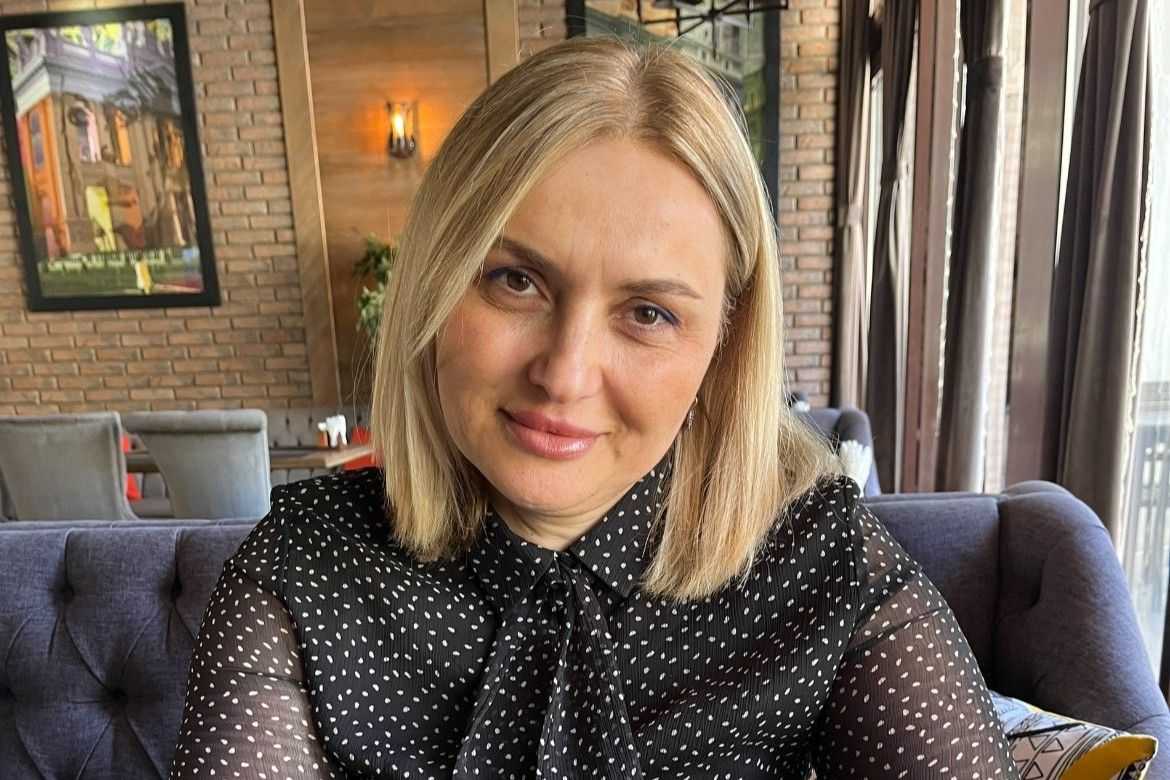
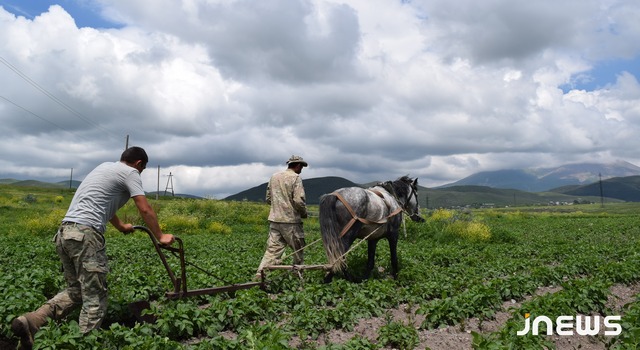
![]() Three young people from the village of Khaveti, in southern Georgia’s Akhalkalaki Municipality, work in the village of Bavra as seasonal workers. Their main tool is a horse, which they use to till the potato beds in the fields of Bavra.
Three young people from the village of Khaveti, in southern Georgia’s Akhalkalaki Municipality, work in the village of Bavra as seasonal workers. Their main tool is a horse, which they use to till the potato beds in the fields of Bavra.
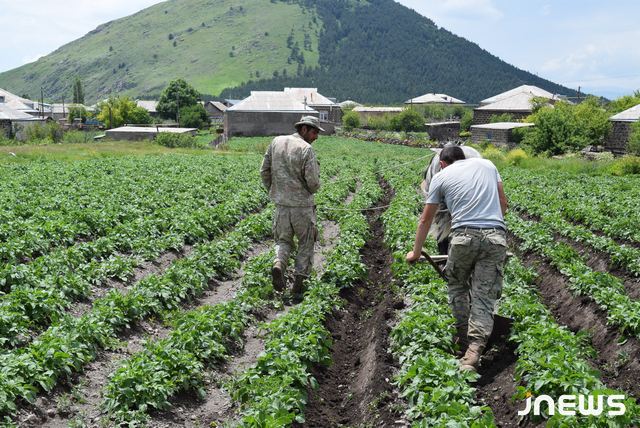
As the time for sowing potatoes in Akhalkalaki approaches, people hurry to till the land. In Bavra, people prefer to do this with the help of a horse. Knowing this, Hovsep, Artur, and Suren have been working in the village of Bavra for a week now, tilling potato fields with the help of horses.
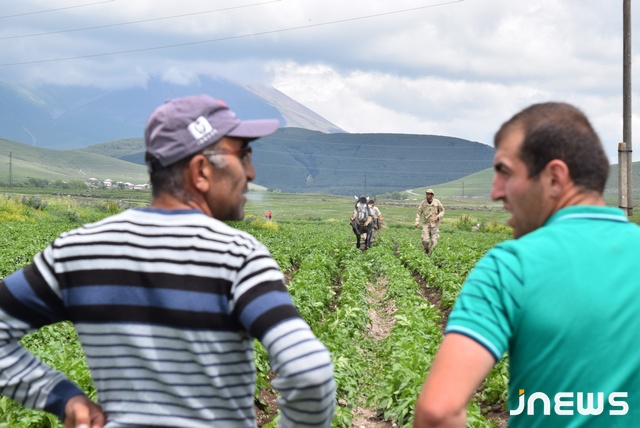
At 7 am, when it’s not yet fully bright, the young men wake up and quickly make their way to the fields, to work until the sun goes down. Each of them knows their duties: one brews coffee, the second prepares the horses, while the third polishes the ploughs.
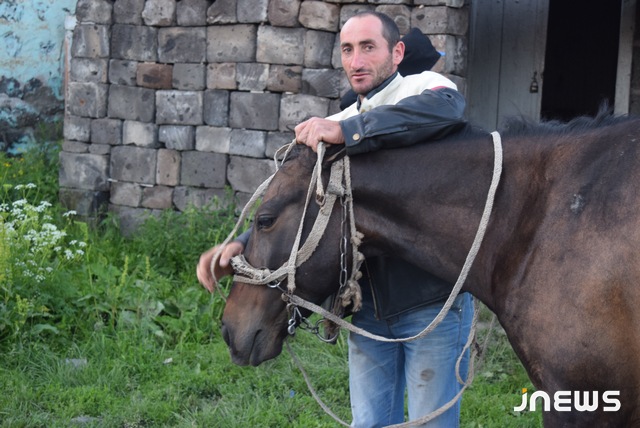
The men say that if the weather is fine and there is no rain, they will be able to till up to two hectares of land a day. Usually, they manage to till 1–1.5 hectares. They don’t complain, glad that they have work to do.
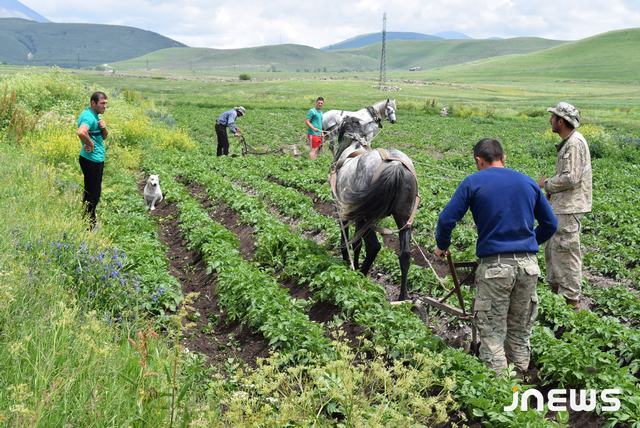
It’s not easy to walk with a horse from sunrise till sunset, to hold the reins, whether in sun or rain. Everyone says that we earn a lot of money over a couple of days, but who wouldn’t working day and night? We came to this village, we left everything behind to earn some money. We’re staying at a friend’s place, we spend money on food, cigarettes, and we have nothing left from the money we earn’, Artur says.
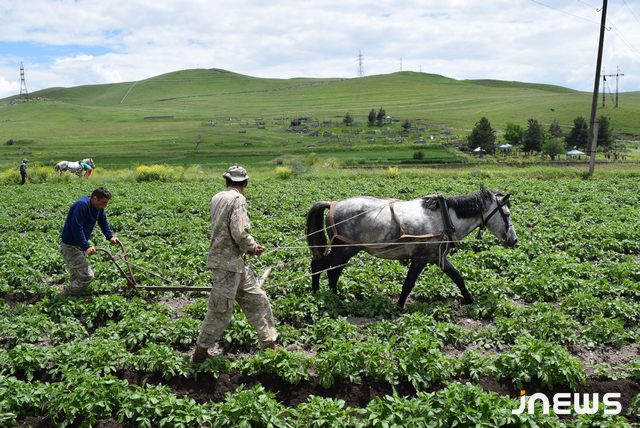
Villagers prefer horses, because they are cheaper and safer than tractors.
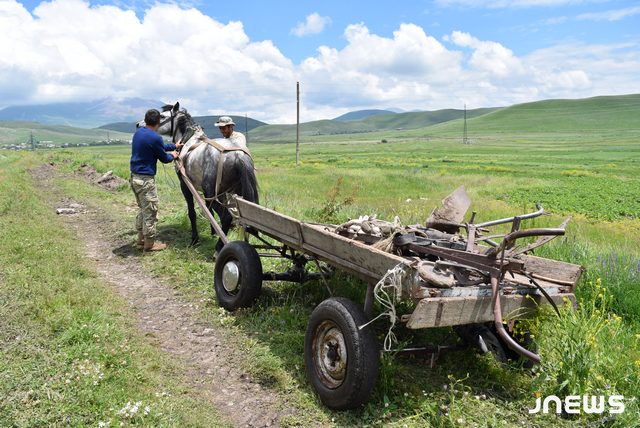
‘It’s cheaper with horses. On a potato field there are no lumps left, and they don’t create problems during irrigation. The soil remains moist for a long time. I don’t till with a tractor because my field is small, there is not enough space for a tractor. It would only damage the potatoes’, Hakob Aslanyan, a resident of Bavra says.
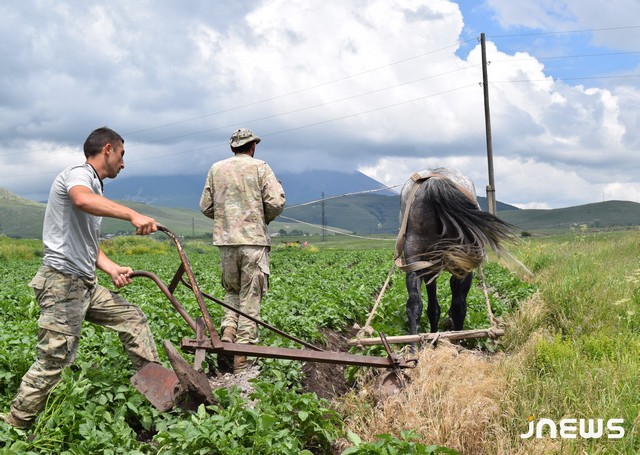
In the evening, when they return home, Suren and Hovsep take the horses to the river.
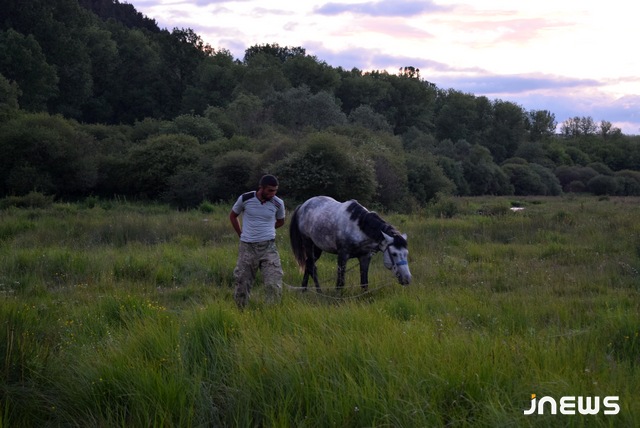
In their spare time, Artur and Suren nail horseshoes to the hooves of horses passing by. Usually, a horseshoe is replaced when it’s worn-out, the nails fall out, and the animals finds it difficult to walk.
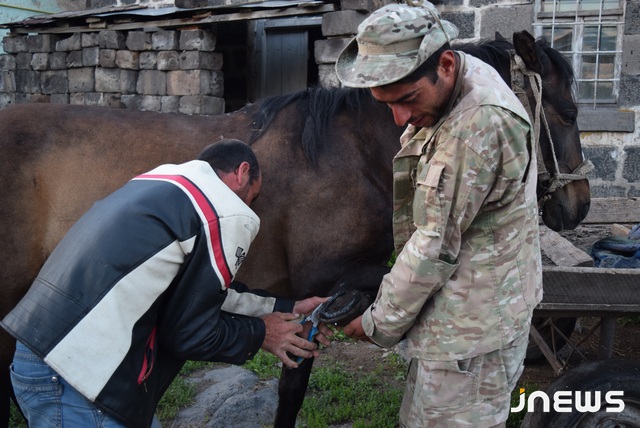
Soon the men will go back home with their earnings, which they will spend on the needs of their families. They will wait for the next job opportunity.
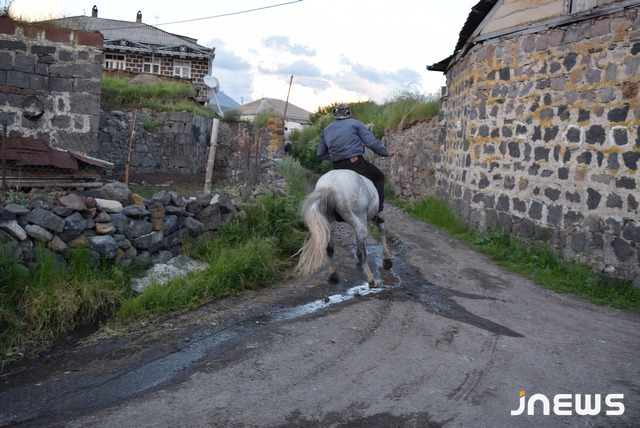 The article is a translation of a partner post written by Lavrent Aslanyan; it first appeared on Jnews on 26 June 2017.
The article is a translation of a partner post written by Lavrent Aslanyan; it first appeared on Jnews on 26 June 2017.


